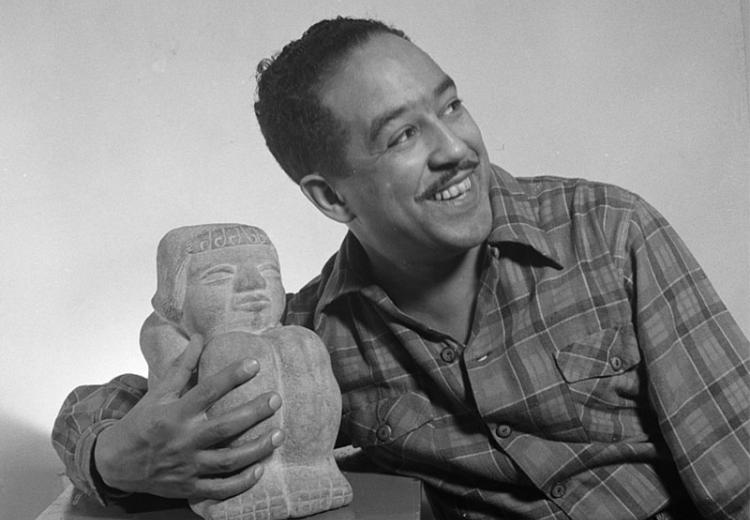The Poet's Voice: Langston Hughes and You

Portrait of Langston Hughes.
When the Academy of American Poets, an EDSITEment-reviewed website, asked the public to vote on their favorite American poet, the verdict was decisive: Langston Hughes. The Academy then sent a petition to the U.S. Postal service urging the adoption of a stamp commemorating this most popular of American poets, and on February 1 (the poet's birthday), 2002, the U.S. Postal Service did just that, issuing the stamp pictured in the left-hand corner above.
Poets achieve this kind of popular acclaim only when they express clear and widely shared emotions with a forceful, distinctive, and memorable voice. But what is meant by voice in poetry, and what qualities have made the voice of Langston Hughes a favorite for so many people?
Helping students to answer this question is the primary purpose of this lesson. Five journal entries and accompanying class discussions guide students in developing a general definition of voice in poetry, and in analyzing and appreciating the poetic voice of Langston Hughes in particular. These writing and discussion activities culminate in a writing assignment (Activity 7, below), in which students either write a poem expressing their own voice (as developed in their journals), or write about one of the qualities of Langston Hughes's poetic voice (as explored in class discussion).
Guiding Questions
What qualities make a writer's voice forceful, distinctive, and memorable?
Learning Objectives
Develop a definition of what is meant by voice in poetry
Learn about the qualities that make Langston Hughes's voice distinctive, forceful, and memorable
Write journal entries to develop their own voices as writers
Learn how images convey strong emotions in poetry
Learn how poetry gives shape, direction, and meaning to strong emotions
